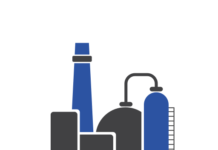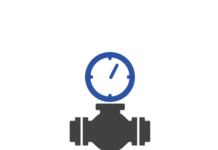Rolls-Royce will supply gas-shielded propulsion systems for two vessels being built by Abeking & Rasmussen for the German Federal Waterway and Shipping Administration. The systems will be used on two multi-purpose 95-meter special ships, which will handle accidents, fires or unable-to-maneuver vessels.
The propulsion systems will help the ships reach speeds of over 15 knots so they can reach accident scenes in no more than two hours keep working under difficult conditions on the North and Baltic Seas.
The two ships will use gas-electric propulsion systems based on four medium-speed Bergen B36:45L6AG units from Rolls-Royce, each delivering 3,600 kW. Rolls-Royce has specially developed a form of gas protection to keep the engines operational even if, for example, the ambient air has been contaminated with explosive gases following a gas tanker accident.
Rolls-Royce’s system adjusts engine power output based on the amount of gas in the intake air – more gas means that less gas fuel is fed to the engine. If the gas volume is too high, flaps will shut off the intake of gas and air, stopping the engine.
The vessels will also be able to tow weights of 145 tons and come equipped with chemical tanks, an explosion-proof safety and container cargo hold, along with oil collection equipment such as skimmers, oil-holding tanks and a separation room. The entirety of both ships will be gas-protected as well, where the windows and doors can be sealed against gas and the interior of the vessel pressurised to prevent the entrance of harmful gas.
The ship technology division of the Federal Waterways Engineering and Research Institute received the commission to plan, design and tender the vessels. It is now managing their construction.
The gas engines will help meet a German government directive to reduce CO2 emissions by governmental vessels. Enak Ferlemann, Parliamentary State Secretary to the Federal Minister of Transport and Digital Infrastructure, said: “With the new LNG-powered ships that also carry the Blue Angel environmental certificate, we’re simultaneously ensuring top safety and top environmental standards in high-tech shipbuilding.”
The vessels will replace their predecessors, the Scharhörn and Mellum, which have served for 46 and 36 years respectively. Both ships use MTU-brand engines from Rolls-Royce. The two vessels are expected to enter service in 2023 and 2024. A decision to order a third, identical vessel will be made ty the end of 2020.




